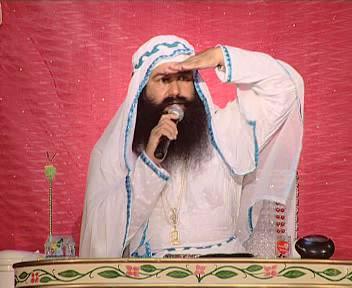

 NEW DELHI, India—India’s powerful chief film censor on Friday accused the government of interference after quitting over the clearance of a movie starring a controversial godman, known for his garish jewellery and outfits, for release.
NEW DELHI, India—India’s powerful chief film censor on Friday accused the government of interference after quitting over the clearance of a movie starring a controversial godman, known for his garish jewellery and outfits, for release.Leela Samson claimed the national government was meddling in the Central Board of Film Certification’s decisions and also accused her colleagues of “coercion and corruption”.
Samson told AFP that the handling of the outlandish film “MSG: The Messenger of God” starring cult leader Gurmeet Ram Rahim, who faces charges in connection to a murder, had been “the last straw”.
Amid fears the promotional film — which shows Rahim performing miracles, preaching to thousands and beating up gangsters while singing and dancing — could spark protests and religious tension, the board rejected it.
But the film was then referred to an appeals tribunal which cleared its release for Friday, although it has now been delayed over the row.
In a statement emailed to AFP, Samson said her reason for quitting included “interference, coercion and corruption of panel members and officers of the organisation who are appointed by the (information and broadcasting) ministry.”
Junior information and broadcasting minister Rajyavardhan Singh Rathore denied any interference, saying the final call over a film lies with the Film Certificate Appellate Tribunal (FCAT).
“The government is absolutely hands-away from all decisions of the censor board. They are an independent body and they need to behave like one,” he told reporters.
But another censor said she was quitting late Friday and warned others would follow, saying the board faced a funding shortage and was not being allowed to function properly.
“There is no point in us being there. We cannot function like this,” Ira Bhaskar told the Times Now news channel.
Another member of the censor board, Nandini Sardesai, said she was concerned that the film had been cleared in haste.
“It was the collective decision of eight of us that the movie was not suitable for public viewing,” Sardesai told NDTV. “Usually the (appeal) tribunal takes 15 to 30 days to clear a film, but this case was cleared within 24 hours.”
India’s film censors have a long history of barring movies, including on fears of causing religious offence, and of cutting scenes.
Rahim angers mainstream Sikh leaders who believe that he insults and belittles their faith.
Sporadic protests broke out Friday in northern Punjab — which has a strong Sikh population — and other states against the movie, while the cult followers took to social media urging free speech.
Rahim himself appealed for calm, saying there was nothing offensive in the film, which shows the bearded guru riding a motorcycle and being mobbed by disciples.
“Whoever is opposing the film, I request them to first watch it. There is nothing in the film to oppose,” he told reporters.
Rahim faces charges in connection with the murder of a journalist in 2002 along with claims of sexually exploiting female followers, allegations he denies.
The 47-year-old is also under police investigation for allegedly encouraging 400 followers to undergo castrations at his ashram so they could get closer to god.
He heads the Dera Sacha Sauda cult in the northern state of Haryana, which describes itself as a social welfare and spiritual organisation with millions of followers in India and abroad.




